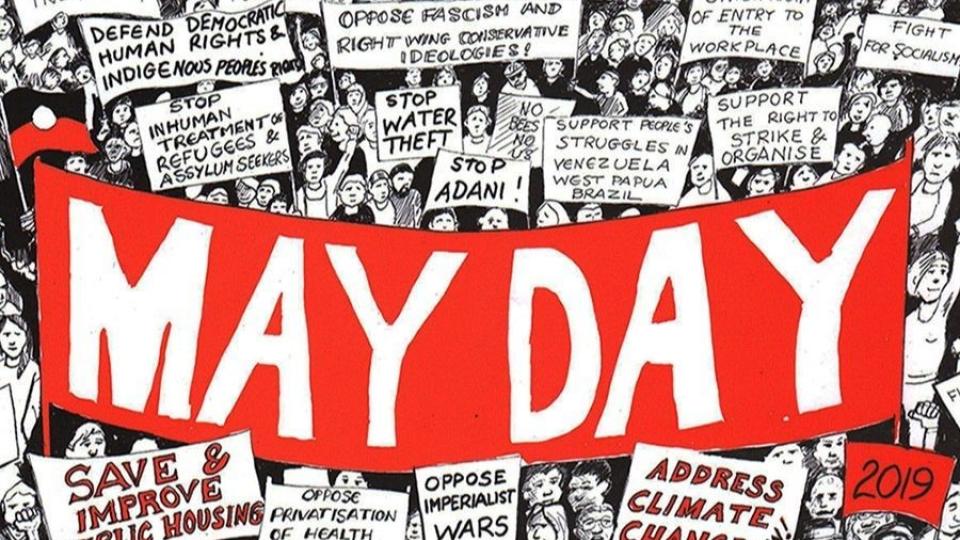Working people demand their fair share

I will happily take any opportunity to wave a red flag in public. My chance to do so this year was on May 1, the International Workers' Day.
In Newcastle, the Hunter Workers May Day community and union rally was held on May 1 instead of, as has been recent custom, on the closest Sunday. It was part of a renewed campaign by unions that saw more than 100,000 workers march through Melbourne on April 10 to demand a pay rise.
Is such action by unions just an attempt to stir up class conflict — the politics of envy — as conservative politicians would have us believe?
Or is class warfare alive and well in Australia?
The class war is not a declared war, but an undeclared one that impacts most severely on the poor, the underpaid, the mentally ill, the homeless, the unemployed and other disadvantaged people.
The winners, and in many ways the perpetrators of this undeclared class war, are the super-rich who benefit from growing inequality in Australia. According to Oxfam Australia, this country's 43 billionaires saw their wealth jump by $36 billion to $160 billion last year.
This growth occurs because so much of the economic benefit achieved by increased productivity is absorbed by the rich. For example, the trend to casualisation, which is often dressed up as “innovation”, means that people often work harder, and produce more, for longer hours and less pay.
At the same time, wage growth has been so low that even the Reserve Bank believes Australia needs a pay rise for the good of the economy. The wages share of national income has fallen to under 60% and the minimum wage is just 44% of average full-time earnings.
The reduction in penalty rates for our lowest paid — those who are most dependent on penalty rates — and the legalistic and limiting industrial laws that hamper union organising are all part of a deliberate attempt to prevent unions from representing their members.
Is it the politics of envy to demand a living wage, to have secure housing, affordable health care, an opportunity for education and the ability to enjoy the simple pleasures of life with family and friends?
It is not as if anyone at a May Day rally is likely to be demanding a private jet to whisk them off to a luxurious tax-haven hideaway in the Cayman Islands.
The modern "working class" aren't only blue collar factory workers. Unionists these days are just as likely to be delivery drivers, call centre workers, customer service officers, education and health professionals as well as the fast food workers who ask you with that exhausted smile if you'd "like fries with that".
Union members come in all shapes, sizes, backgrounds and with different belief systems. I have even known and worked with a few who were conservative voters.
While disadvantaged Australians remain trapped in a cycle of poverty, the top 1% of the country's super rich own more wealth than the bottom 70%. Are we seriously expected to believe that corporate tax cuts will “trickle down” to benefit everyone, when one-third of companies operating in Australia pay no tax?
The government's ongoing attempts to demonise union officials aim to discredit their claims for social justice, to sow disunity and to have another potential scapegoat for the misery that capitalism imposes when the “trickle down” inevitably doesn't eventuate.
Most Australians, unionists and non-unionists alike, are egalitarian, play fair and believe in paying our way when we can, including, if somewhat begrudgingly at times, our taxes.
A pay rise for workers, along with an increase in the Newstart allowance, would stimulate the regional economy and small business and promote the welfare and happiness of the whole community.
We need to change the rules so that working people have fair pay rises and so that a fair share of the wealth they create stays with them and doesn't seemingly defy gravity and flood upwards to the billionaires.
[A version of this article was published by the Newcastle Herald on May 1. Steve O'Brien is a member of the Community and Public Sector Union and Socialist Alliance. He attended Newcastle’s 600 strong May Day rally.]